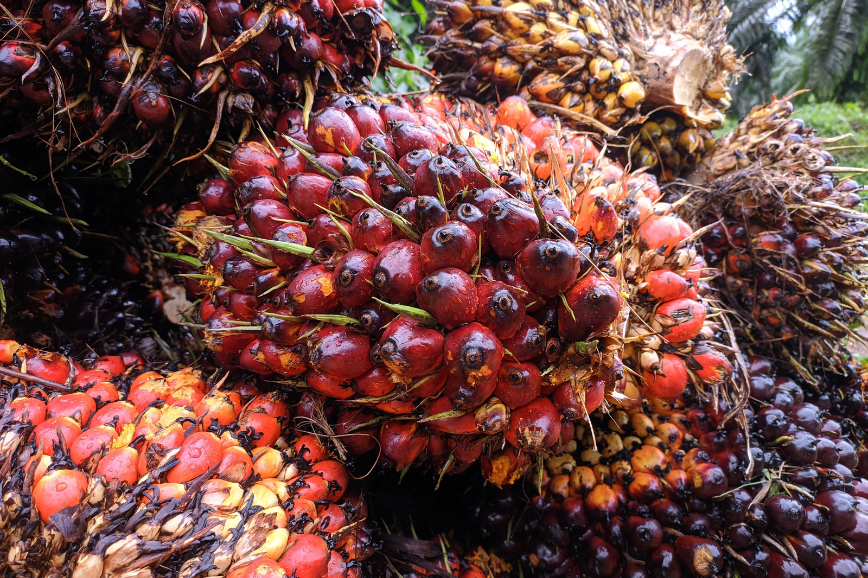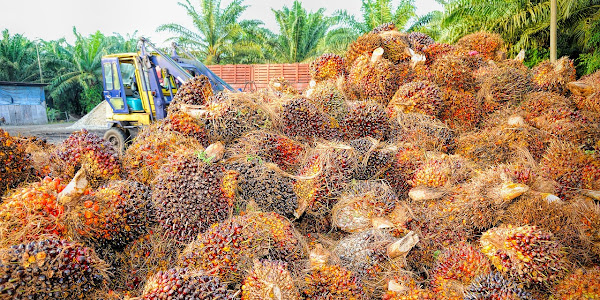Starting a palm oil business in Nigeria looks like a good idea because lots of people want palm oil. Nigeria makes a lot of palm oil, so there’s a big chance for business owners to make money in this market. But to succeed, you need to plan well, do things strategically, and know how the palm oil business works.
Why Start a Palm Oil Business in Nigeria?
Starting a palm oil business in Nigeria is a good idea for a few reasons. First, there’s always a need for palm oil, both in Nigeria and in other countries. Nigeria doesn’t make enough palm oil to meet its own needs, so it has to buy some from other places. This means there’s a chance for local businesses to step in and make money by selling palm oil.
Also, the price of palm oil can go up and down throughout the year. When there’s not enough palm oil around, the price goes up. Smart business owners can take advantage of these price changes to make more money.
And palm oil isn’t just used for cooking. It’s also used in things like makeup and other products, so there are lots of different people who might want to buy it. That means there’s a big market for palm oil, which is good for business.
RECOMMENDED: How To Start A Mini Importation Business In Nigeria 2024

Key Tips for Starting a Palm Oil Business
- Know the Industry: Before jumping into the palm oil business, do your homework. Learn about how palm oil is grown, processed, and sold. Figure out which part of the business suits you best and matches the opportunities in the market.
- Make a Good Plan: Create a solid business plan that outlines your goals, who your customers will be, what the competition is like, how you’ll promote your business, and how much money you expect to make. A clear plan will help you make smart decisions and increase your chances of success.
- Get a Steady Supply and Storage: Make sure you have reliable ways to get good palm oil and a place to store it safely. Build relationships with trustworthy suppliers so you always have enough stock. And invest in proper storage to keep your palm oil fresh and reduce the risk of running out.
- Focus on Quality: Quality is key in the palm oil business. Make sure the palm oil you sell meets high standards and satisfies your customers. If people know they can count on your product, they’ll keep coming back, and your business will grow.
- Market Your Business Well: Come up with ways to tell people about your palm oil business and get them interested. Use both traditional methods like ads and modern methods like social media. Show off your products and interact with customers online and in person.
- Be Open to New Ideas: Keep up with what’s happening in the industry and be open to trying new things. Look for ways to make your products stand out, whether it’s through how you package them or where you sell them. Being innovative can help your business stay ahead of the competition.
- Follow the Rules and Think About the Future: Make sure you follow all the rules and regulations for selling palm oil. This includes things like how you treat the environment and your workers. Also, think about how you can make your business sustainable for the long term by being responsible and caring for the community. That way, your business can thrive for years to come.
Requirements and Costs
Starting a palm oil business in Nigeria entails various requirements and costs, including:
- Land and Buildings: Depending on how you want to run your business, you might need land for growing palm trees, buildings for processing palm oil, or warehouses for storing it. Remember to think about the costs of buying land, getting it ready for your use, and setting up the necessary buildings.
- Tools and Machines: Get the right tools and machines for making palm oil. This could include things like machines for squeezing oil out of palm fruits, machines for making the oil clean, and equipment for putting the oil into packages. Think about both how much it costs to buy these things and how much it costs to keep them running.
- Stuff You Need to Make Stuff: Set aside money for buying the palm fruits and other things you need to make palm oil. Keep enough of these things on hand so you can keep making oil even if there are problems with getting more.
- People Power: Hire skilled workers to help you with different parts of your palm oil business, like making the oil, running things, selling it, and handling paperwork. Spend some money on training them so they can do their jobs well.
- Following the Rules and Getting Permission: Budget for the costs of following all the rules and getting the permission you need to run your business legally. This might mean registering your business, getting permits, and getting certifications to show that your palm oil is safe to eat and doesn’t hurt the environment.
- Spreading the Word: Set aside some money for telling people about your palm oil business and getting them excited about buying your products. This might mean things like ads, making your brand look good, designing packages that catch people’s eyes, and running special promotions.
How Profitable is the Palm Oil Business in Nigeria?
Whether or not a palm oil business in Nigeria makes money depends on a few things, like how much people want palm oil, how you set your prices, how well you run things, and how you compare to other businesses. Even though there’s a good chance to make money, you’ve got to plan carefully, manage things smartly, and be ready to change your approach based on what’s happening in the market.
RECOMMENDED: How To Start A Mini Importation Business In Nigeria 2024
Tips for Success
To succeed in the palm oil business in Nigeria, consider the following tips:
- Quality Assurance: Prioritize product quality and consistency to build trust and loyalty among customers.
- Customer Engagement: Foster strong relationships with customers through excellent service, responsiveness, and personalized experiences.
- Market Differentiation: Differentiate your brand by offering unique value propositions, such as organic, sustainable, or specialty palm oil products.
- Supply Chain Management: Optimize your supply chain for efficiency, reliability, and cost-effectiveness to ensure uninterrupted operations and timely delivery of products.
- Continuous Improvement: Embrace a culture of continuous improvement and innovation to stay ahead of competitors and meet evolving consumer preferences.
Expanding Your Palm Oil Business
After your palm oil business is up and running smoothly, think about ways to make it even bigger. You could try selling different palm oil products, selling in new places, or getting involved in other businesses connected to palm oil. Look into teaming up with other companies or working together with others to grow faster and take advantage of new chances to succeed.

What are the risks of palm oil business in Nigeria?
There are more things to think about in the palm oil business:
- Quality Problems: Sometimes, you might end up buying palm oil that’s not good. This can make people not trust your business and could hurt your reputation.
- Getting Palm Oil Around: Moving palm oil from where it’s made to where it’s needed can be hard. Roads might not be good, or there could be other problems that make it take longer or cost more.
- Figuring Out the Right Time to Sell: Knowing when to sell palm oil to make the most money can be tricky. Prices change a lot based on what people want and how much there is.
- Storing Palm Oil: It’s important to know how to keep palm oil safe and fresh. If you don’t store it right, it can go bad and you’ll lose money.
- Lots of Travel: Running a palm oil business might mean you have to travel a lot. You might have to go see how things are going where the palm oil is made, talk to people who sell it to you, or find new places to sell it.
Facing Challenges
Running a palm oil business can make you a lot of money, but it’s not always easy. You might have to deal with prices going up and down, following rules, and taking care of the environment. Keep an eye out for problems, be ready to change, and take action to keep your business going strong for a long time.
Being Sustainable
Make sure your palm oil business is kind to the environment and does good things for the community. Use methods that don’t hurt nature, help out the people who live nearby, and do things to make life better for everyone. Show people that you care about these things, and they’ll be more likely to buy from you and think highly of your brand.
Conclusion
The palm oil business in Nigeria offers big chances for entrepreneurs who are ready to face challenges, seize opportunities, and run their businesses honestly and smartly. By doing things the right way, trying new ideas, and caring about the environment, entrepreneurs can create strong and profitable palm oil businesses that help the country grow and do well. To start and do well in the palm oil business in Nigeria, you need to plan carefully, work hard, and aim to be the best. By understanding how the market works, making sure your products are good, trying new things, and doing business in a fair and sustainable way, entrepreneurs can make money and help the country grow.
RELATED POST:




